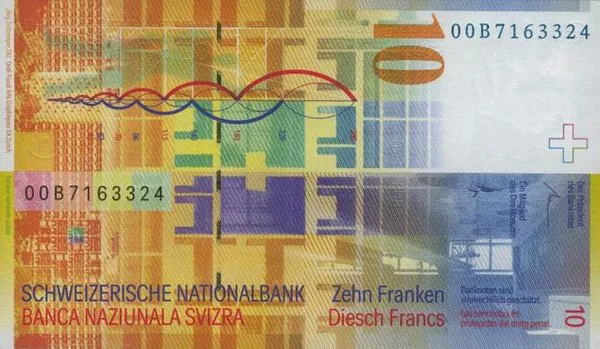Swiss Francs (CHF) are the official currency of Switzerland and hold significant value in the global financial market. Whether you’re planning a trip to Switzerland or have leftover CHF from a previous visit, knowing where and how to exchange Swiss Francs is essential. This comprehensive guide will walk you through the various options available for exchanging Swiss Francs, including banks, currency exchange offices, online platforms, and other convenient methods.
Banks
1. Local Swiss Banks: When in Switzerland, one of the most reliable and convenient options for exchanging Swiss Francs is to visit a local bank branch. Swiss banks are known for their efficiency, security, and competitive exchange rates. Major banks such as UBS and Credit Suisse offer currency exchange services to both account holders and non-account holders.
2. International Banks: Many international banks operate branches or have partnerships with Swiss banks, allowing customers to exchange Swiss Francs at their respective branches worldwide. Contact your bank ahead of time to inquire about their foreign currency exchange services and any associated fees.
Currency Exchange Offices
1. Airports and Train Stations: If you’re traveling to or from Switzerland, airports and train stations often have currency exchange offices where you can convert your Swiss Francs. While these locations offer convenience, keep in mind that they may charge higher fees or provide less favorable exchange rates compared to other options.
2. City Centers and Tourist Areas: In cities and popular tourist destinations within and outside Switzerland, you’ll find currency exchange offices that specialize in handling foreign currencies. These establishments typically offer competitive rates, but it’s advisable to compare rates and fees across multiple offices before making an exchange.
Online Currency Exchange Platforms
1. Specialized Online Platforms: Numerous online platforms cater specifically to foreign currency exchange. These platforms allow you to exchange Swiss Francs remotely by placing orders online and having the funds delivered to your desired address or deposited into your bank account. Examples of such platforms include TransferWise, Revolut, and CurrencyFair.
2. Online Banking Services: Some banks provide online banking services that allow you to exchange Swiss Francs through their web or mobile applications. Check with your bank to see if they offer this feature, enabling you to conveniently convert currency from the comfort of your own home.
Prepaid Travel Cards
1. Multi-Currency Travel Cards: Prepaid travel cards, such as those offered by major financial institutions and travel companies, can be loaded with multiple currencies, including Swiss Francs. These cards function like debit or credit cards, allowing you to withdraw cash from ATMs or make purchases at merchants accepting card payments. They often offer competitive exchange rates and are a convenient option for travelers who want to manage their expenses while abroad.
2. Peer-to-Peer Exchanges and Online Marketplaces
Peer-to-Peer Exchanges: In recent years, peer-to-peer currency exchange platforms have gained popularity. These platforms connect individuals looking to exchange currencies directly, cutting out the intermediaries typically involved in traditional exchanges. By matching with someone willing to exchange Swiss Francs for your desired currency, you may be able to find more favorable rates.
Online Marketplaces: Online marketplaces that facilitate person-to-person transactions, such as eBay or local classified websites, sometimes have sections dedicated to foreign currency exchange. Exercise caution when using these platforms and ensure you are dealing with reputable sellers to avoid scams or counterfeit currency.
Considerations and Tips
1. Exchange Rates and Fees: When exchanging Swiss Francs, compare exchange rates and fees across different options to ensure you get the best deal. Keep in mind that some providers may offer attractive exchange rates but charge higher fees, so it’s essential to consider the overall cost.
2. Security and Trustworthiness: Prioritize reputable institutions and platforms when exchanging currency to minimize the risk of fraud or receiving counterfeit notes. Research customer reviews and check for necessary licenses or certifications.
3. Plan Ahead: If you know you’ll need Swiss Francs for an upcoming trip, consider exchanging currency in advance to avoid potential last-minute hassles or unfavorable rates at airports or train stations.
4. Currency Conversion Limits: Depending on local regulations, there may be restrictions on the amount of currency you can exchange or take out of a country. Familiarize yourself with these limits to ensure compliance.
Conclusion:
Exchanging Swiss Francs can be done through a variety of channels, each with its own advantages and considerations. Whether you prefer the convenience of banks, currency exchange offices, online platforms, prepaid travel cards, peer-to-peer exchanges, or online marketplaces, it’s crucial to compare rates, fees, and security measures to make an informed decision. By being aware of the available options and following the tips provided, you can confidently navigate the process of exchanging Swiss Francs and make the most of your currency transactions.


